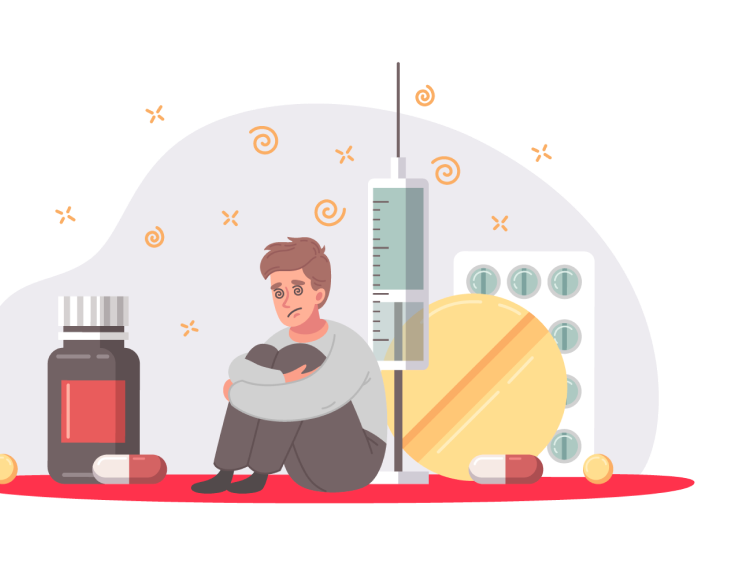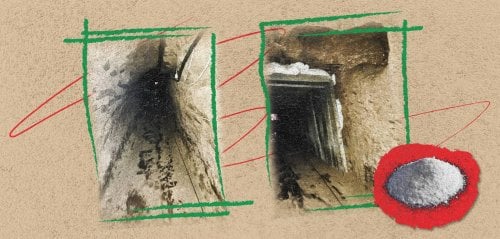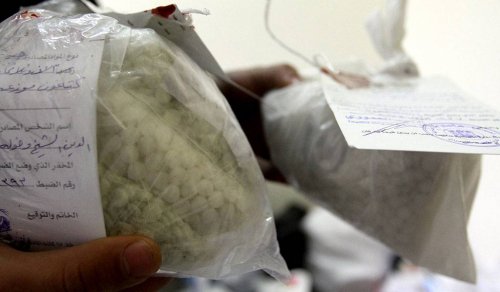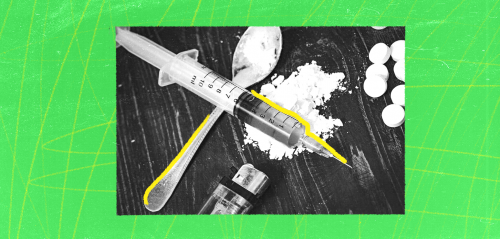It's been eight months since the new Child Rights Law came into effect in Jordan. However, the Jordanian Ministry of Health has yet to fulfill its mandated responsibilities, as clearly outlined in the law. Specifically, the law designates the Ministry of Health as the responsible authority for establishing a specialized center dedicated to the treatment of children addicted to drugs. Although the law, which became effective in early 2023, clearly designates the responsible authority, streamlining it from various departments, the Ministry of Health has not allocated any funds in its 2023 budget for the construction of the desired center. This leaves the issue of treating and rehabilitating addicted children in a state of limbo, mired in a frustrating cycle of delays.
In the midst of this bureaucratic inaction, individuals like Omar, 17, find themselves caught in the grips of addiction. Omar's journey into addiction began when he moved to a new school in the eastern part of Amman, the Jordanian capital, during seventh grade.
"At one point, they let me try it, since I wanted to show them that I'm a tough man," Omar explains. "I tried it, and it almost made me cough my lungs out, but then I started to like it. I began taking cigarettes from them and serving them. I'd buy them sandwiches and cater to their requests." This is how Omar describes his transition from a dreamy child to a youth entangled in legal troubles.
Omar paints a vivid picture of the atmosphere at his new school, saying, "The boys all grew taller than me, their voices became deeper and rougher. They didn't even notice me, and it was as if I were invisible. This began to provoke me and made me feel inferior to them (...) I started getting closer to them, befriending them, and mimicking anything they did, until the day came when I begged them to let me try the type of smoke they had."
After his initial experience with smoking, Omar recalls, "They laughed at me and said, 'You're just a kid, and this smoke is strong. You can't handle it, and you don't have the funds to afford it.'"
Omar neglected his school, becoming attracted to drug dealing to secure his "reward". When he reached the ninth grade, he was arrested in his first case of drug use and distribution.
Omar says, "I went to a rehabilitation center for three months, and after my release, I went back to the friends who had introduced me to the world of drugs. It was at this point that I began selling drugs for my expenses. My addiction escalated, and I moved from marijuana to 'joker', and ultimately to heroin, and I stopped going back home altogether."
Omar was apprehended once more and placed in a juvenile detention center. He recounts, "I returned, got detained, and spent six months in a juvenile detention center, and just like the first time, I received no treatment."
Upon his release, he went back to the drug market. He says, "I delved even deeper into drugs."
Omar's case is just one of 73 cases documented in 66 judicial decisions involving children who have descended into the clutches of drug addiction and subsequently been sent to juvenile detention centers under the Ministry of Development's jurisdiction. None of these juveniles received treatment in specialized government medical facilities due to the absence of such facilities. Moreover, the costs of treatment in private centers present a significant barrier, despite Jordanian law mandating the rehabilitation and treatment of juvenile offenders.
Official statistics aren't available
Between 2017 and 2021, approximately 11,300 juveniles were received by the centers for the upbringing and rehabilitation of juveniles affiliated with the Ministry of Social Development.
When the Ministry of Development inquired about the number of addicted individuals under its care, the ministry's spokesperson, Ashraf Khreis, responded, "There are no specific figures, and it is difficult to ascertain them due to the absence of a specialized center for their treatment."
In an attempt to gauge the extent of child drug addiction, we conducted a search using Qistas, a legal research engine, for judicial decisions issued by the State Security Court (the only court authorized to hear drug-related cases in the kingdom) during the mentioned period.
“Perhaps if I had been treated by juvenile detention centers or my family had helped me with anything other than beating and throwing me out of the house for the sake of their reputation, I would not have reached this point. There is no turning back”
We found that the court convicted 73 juveniles in 66 cases (aged between 14-18 at the time of committing the crime) of one or more drug-related offenses (possession, use, trafficking, or promotion).
The court decisions revealed that the age group of 17 years old was the most frequent among those committing these crimes, accounting for 42 out of the 73 cases.
Regarding the places of punishment, the data indicated that 97 percent of the cases were placed in "juvenile care facilities," while the remaining percentage received prison sentences upon reaching the legal age of 18.
Of course, the convicted children didn't receive any treatment or put in any rehabilitation programs, as was the case with Omar. Rehabilitation was limited to placement in care facilities and the provision of some medications and medical examinations.
Treatment and rehabilitation... Ink on paper
The rights of "Omar" and his peers to receive treatment and rehabilitation have been lost among unimplemented legal texts. The juvenile Law of 2014 clearly states that: "The best interests of the juvenile should be taken into account, along with their protection, reform, rehabilitation, and care." However, the actual practice does not realize these interests. In essence, the law only transfers them to the National Center for Addiction Treatment (under the Ministry of Health, designed for adults) to receive medication and then return to the center, without any rehabilitation programs.
Ashraf Khreis, spokesperson for the Ministry of Development, explains: "When a juvenile addicted to drugs is transferred, basic services are provided to them, such as shelter, food, drink, and clothing."
Afterwards, they undergo an initial medical examination to evaluate their condition by the facility's nurse. If it is determined that they suffer from addiction, they are referred to the National Center for evaluation without staying overnight. Juveniles accused of drug-related cases are separated from others within the facilities, according to Khreis.
…….
The best interests, as stipulated, necessitate their transfer to a specialized center for child addiction treatment, not an adult center, according to human rights lawyer Taghreed Al Dughmi. She holds the Ministry of Social Development responsible for the loss of the right to rehabilitation and care, stating, "Rehabilitation cannot be achieved before treatment."
Furthermore, the centers for the care and rehabilitation of juveniles suffer from a lack of psychological and counseling services due to a shortage of psychological and social specialists compared to the number of detained and convicted juveniles, according to the National Center for Human Rights (an official body) in its latest annual report for 2021. The report recommended enhancing the capabilities of workers in the juvenile justice sector and increasing specialized training, as most care facilities do not adhere to the principle of separation based on age group; separation is mainly based on conviction status and detention.
Drug rehabilitation… for adults only
Relying on the National Center for Addiction Rehabilitation, with no dedicated section for children, is not effective, according to psychiatric specialist in addiction treatment, Walid Sarhan. He believes that treating addicted children is "challenging" because the National Center does not provide them with the necessary healthcare, while treatment costs at private centers are high.
Former President of the National Center for Addiction Rehabilitation, Mohammed Al-Sahem, agrees with Sarhan, stating that there is a need to establish a specialized center for child addiction treatment. He attributes the lack of such a center to the absence of the required financial allocations, a point reiterated by Emad Abu Yaqeen, the Director of Hospital Administration at the Ministry of Health.
In summary, lawyer Al Dughmi asserts that the government bears the responsibility for not implementing the laws because it is the entity tasked with their execution. She adds, "All laws, upon issuance, conclude that the Council of Ministers and the ministers are responsible for execution. Establishing a specialized center for the treatment of juvenile addiction is, in general, the responsibility of the government, the Ministry of Social Development, which did not consider the best interests of the juvenile, and also the Ministry of Health, which did not provide the necessary centers."
“Health” contradicts itself
The Ministry of Health, in a contradictory response, affirmed that "the steps to establish a specialized center for child addiction treatment are proceeding in accordance with regulations and laws. The project has been approved by the Minister of Health, and it will be supervised by several entities to be determined later." However, the ministry did not specify a start date for the project and did not allocate the necessary funds for its implementation in its 2023 budget.
In response, the Ministry of Health stated via email that they have approved the project with details of implementation to be determined later. They also emphasized that there are no obstacles hindering the project, and everything is proceeding smoothly, according to the ministry's response.
Conflict with international agreements
Jordan's shortcomings in the treatment and rehabilitation of addicted juveniles clash with international agreements to which the kingdom is a signatory, especially the Convention on the Rights of the Child (nearly three decades ago) and the International Covenant on Civil and Political Rights, which deals with fair trial guarantees (nearly 47 years ago).
Maaz Al-Moumani, the head of "Lawyers Without Borders" organization and a human rights lawyer, argues that the absence of a specialized center for treating juvenile addiction implies a failure of certain institutions, including the Ministry of Health, to fulfill their duties towards these juveniles. He adds, "Relevant international agreements speak about the separation of juveniles from adults in rehabilitation and rehabilitation centers, so what about issues related to addiction treatment?"
Al-Moumani explains that Articles 10 and 14 of the International Covenant on Civil and Political Rights addressed the necessity of separating juveniles from adults and distinguishing between accused and convicted individuals. Therefore, dealing with juveniles in terms of treatment should be distinct from that of adults, according to Al-Moumani.
"I went to a rehabilitation center for 3 months, and after my release, I went back to the friends who had introduced me to the world of drugs. It was at this point that I began selling drugs. My addiction escalated, from marijuana to 'joker' and then heroin"
Human rights expert Nahla Al-Moumani believes that compliance with international agreements related to the Convention on the Rights of the Child should compel the relevant authorities to allocate a budget, with the need for real-world coordination between different entities. Only then will there be "tangible results". However, the continued lack of coordination and the absence of a database for addicted children are among the reasons that contribute to the increasing rates of child drug use, according to Nahla.
Missed the train
Mohammed (27 years old), unemployed, began his journey with addiction at the age of 16, and he was first arrested a year after starting to use. He says, "My parents are separated. I am the youngest of my siblings, all of whom are married and live in different areas. I excelled in school and was a Quran memorizer, which prevented any suspicions about me, and nobody believed I was addicted."
Mohammed recalls ten years ago, "The first time I used drugs, I was at a youth gathering, and they were distributing hashish. I hesitated and was afraid, but the guys said it would give you a nice feeling. I became curious and wanted to try it."
He continues, "I used for a while, mainly hashish or 'the green bag,' then a new drug appeared called 'Kapt' (Captagon)."
Mohammed was placed in a juvenile detention center in Amman (Al-Jwaideh) twice at the age of 16 and did not receive treatment to save him from addiction at that time. However, in later stages (after turning 20), he was treated twice at the National Center for Drug Rehabilitation.
Mohammed says, "If they had discovered the issue and treated me when I was 16 or 17 years old, the solution would have been easier. But at the age of 25, even if you receive treatment, you will return to the same environment, and the treatment will not be effective. If I had received treatment at a younger age, I wouldn't have returned to using in the first place."
The same goes for Omar: "“Perhaps if I had been treated by juvenile detention centers or my family had helped me with anything other than beating and kicking me out of the house for the sake of their reputation in the neighborhood, I would not have reached this point. There is no turning back on my path.. because my blood itself has become a drug".
This report was completed with the support of Arij
Raseef22 is a not for profit entity. Our focus is on quality journalism. Every contribution to the NasRaseef membership goes directly towards journalism production. We stand independent, not accepting corporate sponsorships, sponsored content or political funding.
Support our mission to keep Raseef22 available to all readers by clicking here!
Interested in writing with us? Check our pitch process here!








